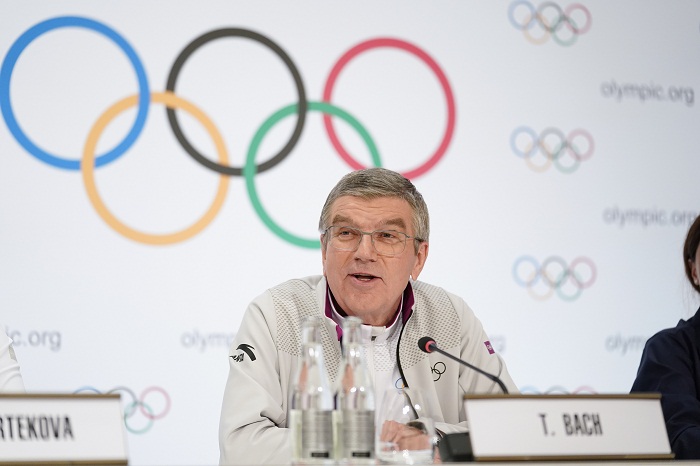In response to the growing climate crisis, the International Olympic Committee (IOC) is aligning with the Paris Agreement on Climate Change by setting a target to reduce its direct and indirect greenhouse gas emissions by 45 per cent, by 2030. The decision was taken at the IOC Executive Board (EB) meeting held remotely last night.
In addition to reducing its emissions, the IOC will offset more than 100 per cent of its remaining carbon emissions. This will be mainly done through the Olympic Forest project, which is part of the Great Green Wall – an existing UN-backed initiative to combat desertification in Africa’s Sahel region. These offsets will make the IOC climate positive by 2024, meaning that it will be removing more carbon from the atmosphere than it emits.
The IOC will also continue to use its influence to encourage others within the sports world to take action against climate change.
"Sport depends on a healthy planet," said IOC President Thomas Bach. "As the leader of the Olympic Movement, we have a responsibility and an opportunity to protect our climate. This ambitious target puts the IOC in line with the Paris Agreement, which aims to limit global warming to well below 2 degrees Celsius, and helps to advance action on climate change."
The IOC is already a carbon-neutral organisation, having offset its 2017-2020 emissions through its carbon partnership with its Worldwide Olympic Partner Dow.
"The IOC's ambitious commitment to reduce its carbon emissions in line with the Paris Agreement is a clear testament to how seriously the IOC addresses the climate crisis, and offers a powerful example of how sport can contribute to the global efforts,” said Prince Albert II of Monaco, Chair of the IOC Sustainability and Legacy Commission.
In the four-year period from 2016 to 2019, the IOC’s average carbon footprint was about 53,000 tonnes of CO2e per year. In order to achieve the 45 per cent cut in emissions, the IOC has set an intermediate reduction target of 30 per cent, to be achieved by 2024. The IOC Sustainability and Legacy Commission has been tasked with developing action plans to achieve both targets, with the support of the IOC administration.
The announcement follows an earlier commitment from the IOC to make the Olympic Games climate positive.
From 2030 onwards, each Organising Committee for the Olympic Games (OCOG) will be contractually obliged to:
– minimise and compensate its direct and indirect carbon emissions; and
– implement lasting zero-carbon solutions for the Olympic Games and beyond.
All upcoming Olympic Games have committed to carbon neutrality.
Tokyo Olympic Games will offset all its direct and indirect emissions. It will use the visibility of the Games to showcase sustainable solutions such as hydrogen-fuelled vehicles, Olympic medals made of recycled mobile phones and podiums made of plastic waste donated by the public.




















